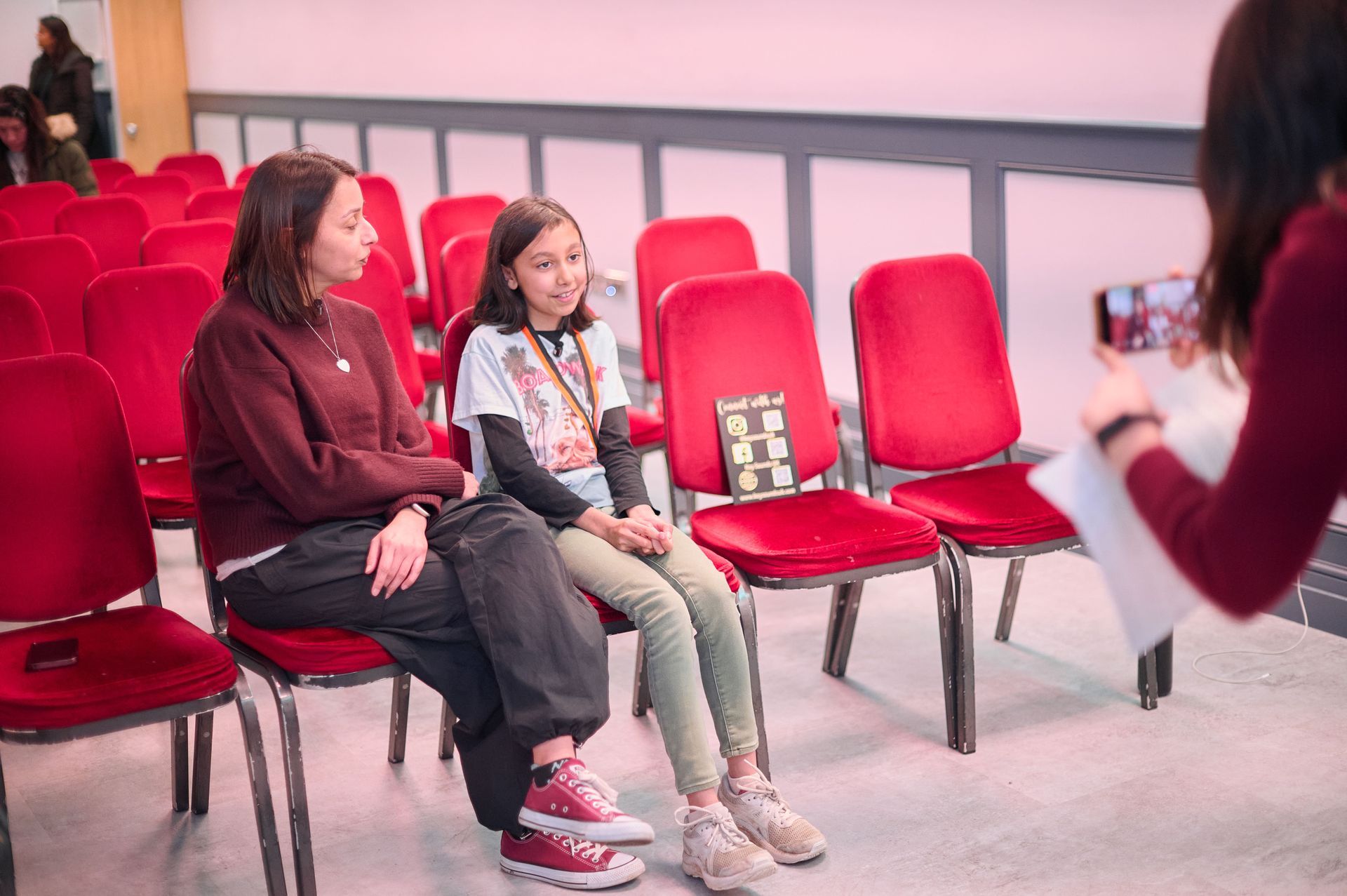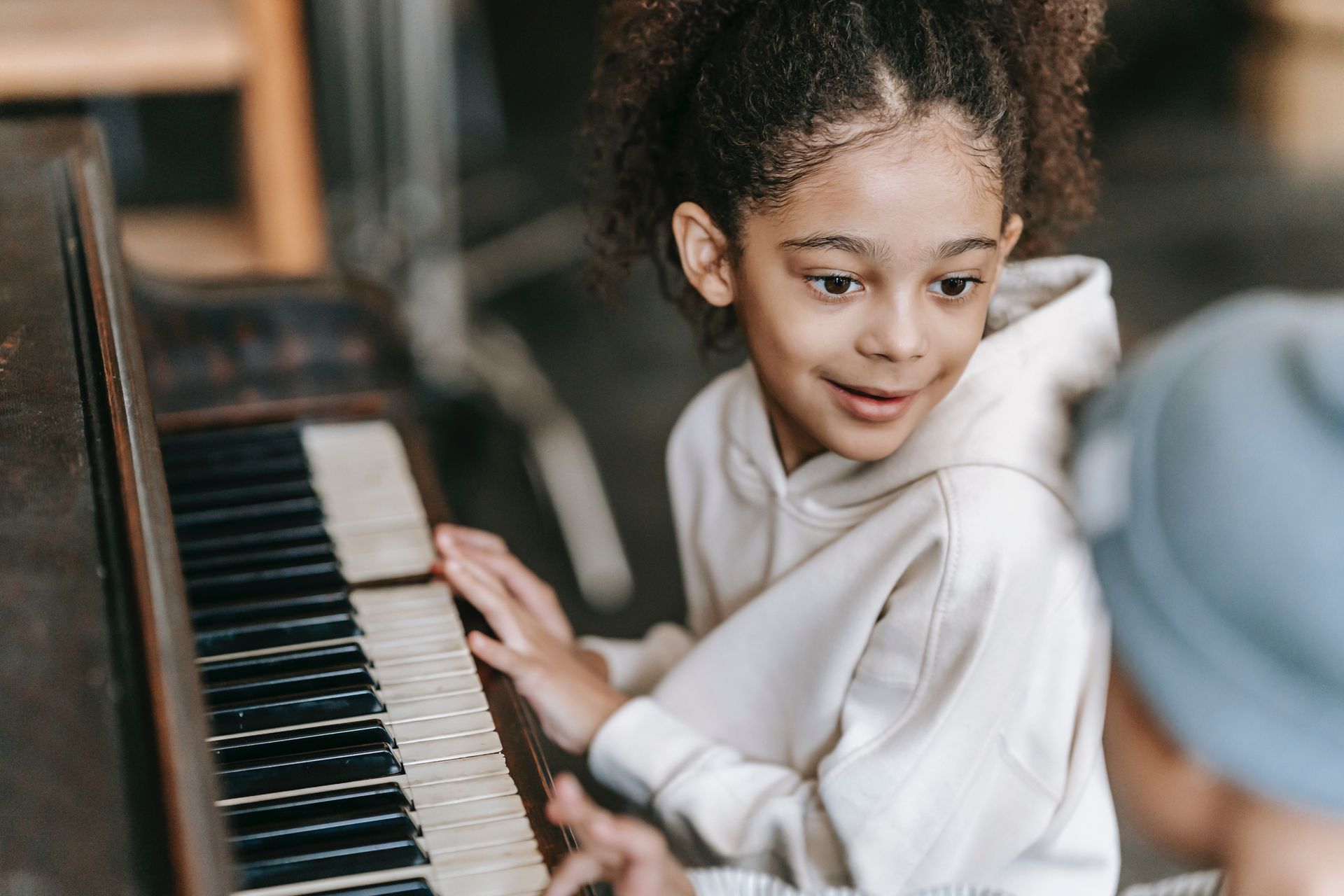Key Sounds UK • October 4, 2018
PITCH

Pitch is how high or low one plays on a musical instrument. When we’re talking about a piano, this is in direct reference to what note is being played.
Notes towards the left hand side produce lower in pitch and notes on the right hand side produce a higher sound. The lower side of the piano tends to be louder and the higher side tends to be quieter. Therefore, one has to develop a sense of control as they play in different regions of the piano.
Pitch is crucial because in an instrumental or music theory exam pitch is included in the following areas:
 Key and Tonality
Key and Tonality
 Scales and Arpeggios
Scales and Arpeggios
 Chords
Chords
 Cadences
Cadences
 Clefs
Clefs
 Intervals
Intervals
 Transposition
Transposition
As learnt about by
ABRSM
pitch is one of the five main elements an examiner looks for in a musician, so be sure to spend some quality time working on both understanding and practising various pitches on your instrument!
For more tips and tricks follow us on Instagram: @keysoundsuk or Facebook: www.facebook.com/keysoundsuk
The post TIME appeared first on Key Sounds UK.

Why do some children continue with piano lessons for many years, while others take time to settle at the start? This is a question many parents quietly wonder about especially in the early months of learning. The answer is rarely about talent or musical ability. More often, it comes down to how supported a child feels as they find their feet, build confidence, and begin to enjoy the learning process. Emotional safety is the starting point not the whole story but it plays a vital role in helping children become comfortable enough to engage, explore, and eventually thrive. Emotional Safety: The Foundation for Learning For a child to learn effectively, they first need to feel: Accepted Understood Supported when things feel challenging In piano lessons, this means children feel able to: Try without fear of being “wrong” Make mistakes without embarrassment Ask questions or need reassurance Without this foundation, learning can feel fragile. With it, learning has room to grow. What Happens Once Children Feel Comfortable When emotional safety is in place, something important shifts. Children begin to: Relax into lessons Take small musical risks Engage more willingly This is often when enjoyment starts to develop. Enjoyment doesn’t mean every lesson is easy or perfect, it means children associate learning with curiosity, encouragement, and progress rather than pressure. Why Enjoyment and Teacher Connection Matter Children are far more likely to remain engaged when they: Enjoy the music they’re learning Feel understood by their teacher Trust the person guiding them week to week A strong, secure teacher–student relationship allows: Honest feedback without fear Gentle challenge without overwhelm Motivation that comes from within the child This connection doesn’t replace structure or expectations; it allows them to work effectively. When Children Want to Do More, Progress Follows Real progress tends to happen when children: Choose to engage Take pride in improving a piece Feel motivated to practise At this stage, practice becomes less about reminders and more about interest. Parents often notice: Fewer battles around practice Greater independence A natural desire to move forward Progress grows from positive momentum, not pressure. How Parents Can Support This at Home Parents play an important role in reinforcing this journey. Simple, supportive actions include: Praising effort rather than results Keeping expectations realistic Allowing learning to be gradual Communicating openly with the teacher When children feel supported both in lessons and at home, learning becomes more enjoyable and sustainable. A Reassuring Final Thought If your child feels comfortable, engaged, and supported, they are on the right path even if progress feels slow at times. Music learning is a long-term journey, and children thrive when that journey feels positive, encouraging, and meaningful. If you ever want to talk about how we support confidence, enjoyment, and long-term engagement in lessons, we’re always happy to help.

If every piano lesson looks different, how do you know the teaching is high quality? Some weeks your child is focused and confident. Other weeks they may be tired, distracted, fidgety, or need more encouragement especially when they’re young. That variation is completely normal. High-quality piano teaching isn’t about every lesson looking the same. It’s about having the right support, structure, and professional oversight in place so learning continues through those natural ups and downs. What makes the difference often isn’t what happens in a single 30-minute lesson, it's everything working quietly behind the scenes to ensure consistency, care, and long-term progress. Teaching as a Profession, Not in Isolation In professional settings, teachers don’t work in silos and high-quality piano teaching is no different. Rather than operating alone, teachers work within a shared framework where: Expectations are aligned Teaching approaches are discussed and refined Progress is viewed over time, not lesson by lesson This doesn’t limit individuality or creativity, it strengthens it. It means your child benefits from collective experience, shared standards, and continuity, rather than relying on one isolated perspective. The Role of Headteacher Oversight Alongside the class teacher, there is also a headteacher who oversees someone who understands your child’s learning journey beyond a single lesson. This provides: Consistency across weeks and terms A second professional perspective when needed Clear continuity if changes ever occur For parents, this means reassurance. For children, it means stability. Clear Structure Without Rigidity High-quality piano lessons are supported by: Clear learning pathways Age-appropriate expectations Thoughtful pacing This allows teachers to adapt lessons when children are tired, distracted, or having an off week without losing direction. Structure doesn’t mean pressure. It means your child’s learning always has purpose. Why This Matters for Your Child When lessons are supported by systems rather than chance: Progress is steadier Confidence is protected Learning continues even during busy phases A high-quality piano lesson is never just about what happens in the room. It’s about the support surrounding it. If you ever want to understand how your child’s learning is supported behind the scenes, we’re always happy to explain. If you have any questions feel free to reach out and ask us!

From the outside, piano lessons can look simple: a weekly session, a teacher, and some practice at home. But what parents are really investing in extends far beyond those visible moments. Here’s what piano lessons include even when it’s happening quietly in the background. Ongoing Professional Thought Each lesson is shaped by more than the piece being played. Teachers consider: How your child responded last week Their confidence and energy levels What pace suits them right now Lessons are adjusted continuously and not delivered on autopilot. Long-Term Progress Planning Progress isn’t just about moving forward in a book. It includes: Developing independence Building coordination and listening skills Learning how to practise effectively Strong foundations now prevent frustration later. Emotional Guidance as Part of Learning Children learn through various approaches, depending on the child. High-quality teaching includes: Encouraging effort over perfection Normalising mistakes Supporting confidence during “wobbly” phases This emotional guidance often determines whether children continue learning long-term. Support Beyond the Lesson Behind each lesson is: Teacher reflection Professional discussion Oversight from the wider teaching team This ensures consistency and continuity even as children grow, change, or go through busy school periods. Why This Matters When you invest in piano lessons, you’re investing in: Stability Thoughtful teaching Long-term development What you don’t always see is often what protects progress the most. If you have any questions feel free to reach out and ask us!

